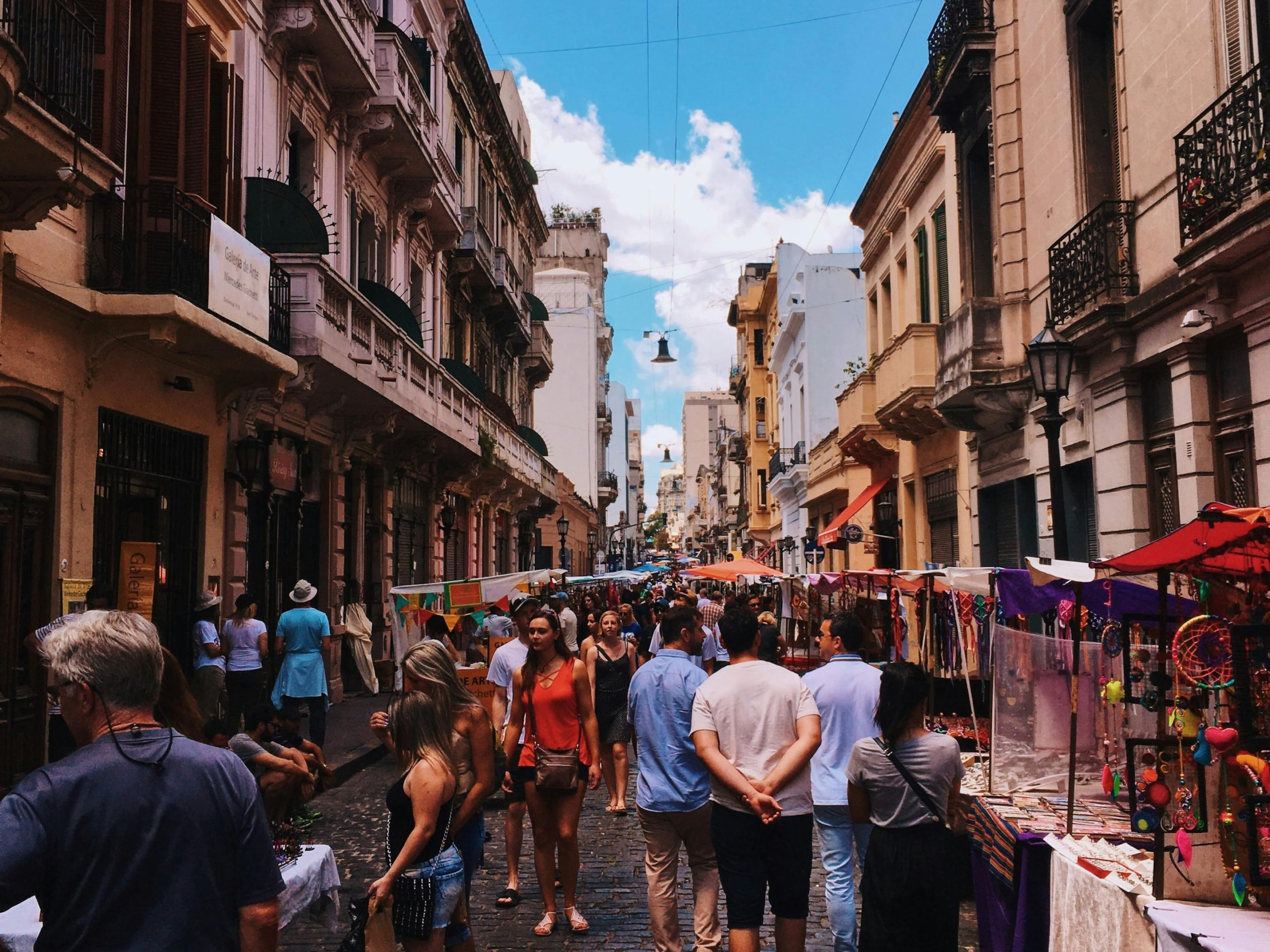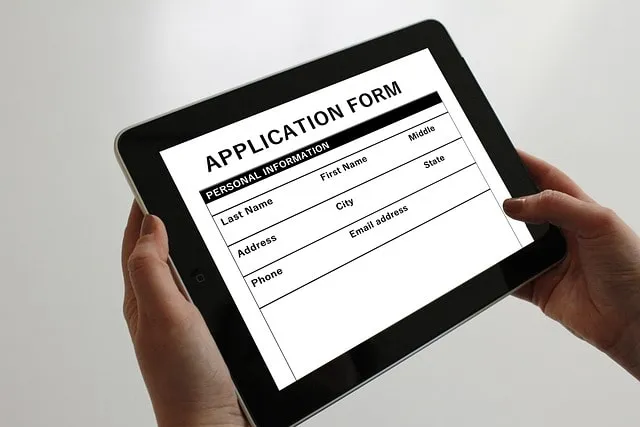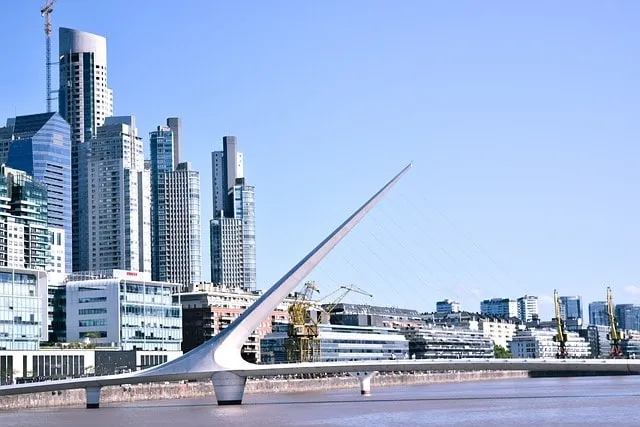Argentina offers one of the world’s most attractive residency and citizenship pathways due to its low entry barriers, fast naturalization process, and various visa options tailored to different needs. The country’s vast landscapes, affordable cost of living, high-quality healthcare, and access to global markets through the Mercosur agreement make it appealing for expats, retirees, and digital nomads. Argentine nationals enjoy extensive travel freedom and benefits from Mercosur membership, which allows them to travel visa-free within certain countries, making Argentine citizenship attractive for digital nomads and individuals seeking dual citizenship. Notably, Argentine citizenship is attainable after only two years of continuous residency—a unique feature in global immigration systems.
Tourists from many countries, including the US, EU, and Canada, can enter Argentina visa-free for up to 90 days, which serves as an advantageous starting point for exploring long-term residency options. Temporary residency permits are widely used for work, study, investment, or retirement. Popular categories include the Rentista Visa for those with passive income and the Pensionado Visa, which allows retirees with a monthly pension to settle comfortably.
Naturalization in Argentina is notably fast, requiring just two years of legal residence in most cases. Marriage to an Argentine citizen or having Argentine-born children can expedite the pathway. Furthermore, dual citizenship is allowed, providing individuals the strategic benefit of broader global mobility. With visa-free access to over 165 countries, the Argentine passport is ranked among the strongest globally in terms of travel freedom.
While the country’s high inflation rate, bureaucratic challenges, and safety concerns in certain areas may present difficulties, Argentina remains a leading choice for individuals seeking an affordable, lifestyle-friendly destination with significant benefits for long-term residents and citizens.
Understanding Residency in Argentina

Argentina provides a variety of visa categories tailored to individuals’ unique needs, making it a favored destination for temporary residency. For those seeking to stay beyond standard tourist limits, temporary residency visas serve as steppingstones to permanent residency or even citizenship. Available options include Student, Work, Retirement, Digital Nomad, Investor, and Financier (Rentista) visas. These visas are available to foreign nationals who meet specific eligibility criteria. Each category has specific requirements related to finances, employment, or purpose of stay.
The Investment Visa, requiring a minimum ARS 1,500,000 (~USD 2,000), is popular among entrepreneurs, enabling investments in productive, commercial, or service ventures. For retirees, the Retirement Visa mandates proof of a monthly pension of ARS 780,000 (~USD 950), sufficient for residents to comfortably cover living expenses in one of Latin America’s most affordable expatriate destinations. Digital nomads, a growing demographic, benefit from a flexible six-month visa, extendable for another half-year, provided they demonstrate remote income (~USD 2,500/month is recommended).
Investment-focused residency programs in Argentina provide individuals with a unique opportunity to secure long-term residence while contributing to the country’s economy. These programs, tailored to align with Argentina’s economic strategy, cater to investors, retirees, and financially independent individuals. Below is an overview of the available options, investment requirements, and benefits.
Residency Requirements for Foreign Nationals
The Investment Visa mandates a capital investment of a minimum of ARS 1,500,000 (approximately USD 2,000) in productive sectors such as business, commerce, or service industries. This visa not only enables temporary residency but also sets a pathway toward citizenship after three years of residency (or two in some cases). Documentation and financial feasibility of the investment project should be approved by Argentina’s Ministry of Economy.
The Rentista Visa requires proof of a steady monthly income from foreign-sourced passive income like rentals, dividends, or pensions. The minimum suggested monthly income is USD 2,000, deposited into local banking institutions. This visa is renewable annually for up to three years, after which permanent residency may be applicable. After three years of holding a temporary residency, individuals may apply for a permanent residence permit.
For retirees, the Pensionado Visa requires a minimum monthly pension income of ARS 780,000 (approximately USD 950). This program is particularly attractive due to Argentina’s low cost of living, high-quality healthcare, and favorable tax policies for non-Argentine income.
Each of these residency programs provides eventual access to Argentina’s permanent residency and citizenship benefits, which include visa-free travel to over 165 countries, dual citizenship allowances, and low residency requirements compared to other nations.
Practical Steps for Application Processes

When applying for residency or citizenship in Argentina, following precise steps is essential to streamline the process and avoid delays or rejections. The primary requirement is identifying the suitable visa or residency type based on your purpose of stay, such as work, study, investment, retirement, or passive income. Each category comes with distinct requirements, but most applications follow a similar framework.
First, applicants should gather the necessary documents. These typically include a valid passport, a clean international criminal record certificate, proof of financial stability or income (e.g., bank statements), a health insurance policy valid in Argentina, and visa-specific documents such as employment contracts or business investment plans. Foreign documents must be translated into Spanish and apostilled to meet Argentine requirements.
Next, applicants must register with the RaDEX system, the official platform for residency and visa applications. This involves creating an account, uploading documentation, and paying the relevant processing fee, which varies by visa category (typically ranging from USD $200–$600). Upon successful registration, applicants schedule an in-person appointment at an Argentine consulate or the immigration office to finalize biometrics, interviews, and document verification.
The processing time for temporary residency is between 2–5 months, with approvals culminating in the issuance of a National Identity Document (DNI), necessary for accessing public services such as healthcare, education, banking, and employment. Applicants seeking citizenship must fulfill the required residency period and apply through a federal judicial process, which might include an interview and proof of integration.
Dedicated legal counsel is strongly recommended, especially for navigating bureaucracy and ensuring compliance with requirements.
Tips for Obtaining Argentina Residency
Obtaining Argentina residency can be a complex process, but with the right guidance, it can be achieved. Here are some tips for obtaining Argentina residency:
Research Visa Types: Start by researching the different types of residency visas available, such as the Independent Means Visa, the Retirement Visa, and the Investor Visa. Each visa has specific requirements and benefits, so choose the one that best fits your situation.
Meet Eligibility Requirements: Ensure you meet the eligibility requirements for your chosen visa. This typically includes proof of income, health insurance, and a valid passport. For example, the Retirement Visa requires proof of a monthly pension, while the Investor Visa requires a minimum investment in the Argentine economy.
Gather Required Documents: Collect all necessary documents, including a birth certificate, marriage certificate (if applicable), and proof of income. Make sure these documents are translated into Spanish and apostilled to meet Argentine standards.
Apply for Entry Visa: Submit your application for an entry visa at the Argentine embassy or consulate in your home country. This step is crucial for initiating the residency process.
Register with National Directorate of Migration: Upon arrival in Argentina, register with the National Directorate of Migration to obtain a temporary residence permit. This permit allows you to live and work in Argentina while your permanent residency application is processed.
Extend Temporary Residence Permit: After two years of holding a temporary residence permit, you can apply for permanent residency. Ensure you renew your temporary permit as needed and maintain compliance with all residency requirements.
Pathway to Permanent Residency and Citizenship

Acquiring permanent residency and citizenship in Argentina is recognized as one of the most straightforward processes globally, particularly due to its favorable immigration policies. Argentina grants permanent residency typically after three years of temporary residency, though this timeline may vary based on the applicant's circumstances (e.g., MERCOSUR nationals may qualify sooner). A key advantage is that there is no requirement for test-based integration, such as language proficiency or cultural knowledge assessments for permanent residency applicants. Applicants can transition from temporary residency types—such as work, student, retirement, or investment visas—into permanent residency through consistent renewals and fulfillment of visa terms.
The naturalization process for citizenship is even more expedited compared to global standards. After only two continuous years of legal residency—whether temporary or permanent—applicants typically qualify to apply for citizenship. Exceptions exist, offering a more immediate pathway for those married to Argentine citizens or parents of Argentine-born children. Additionally, there is no mandated physical presence requirement throughout the entire process, although maintaining a physical presence of at least 180 days per year is generally advised to avoid complications. Dual citizenship is allowed, a convenience many applicants consider in their decision-making.
Argentine citizens enjoy substantial global mobility, with visa-free or visa-on-arrival access to over 165 international destinations, including most of Europe and South America. Furthermore, Argentina warmly embraces foreign residents, providing affordable healthcare, accessible education, and sound avenues for financial stability.
Global Mobility with an Argentine Passport
An Argentine passport offers its holders a high level of global mobility, with visa-free travel to over 163 countries. Some of the benefits of global mobility with an Argentine passport include:
Visa-Free Travel to Key Regions: Argentine passport holders can travel visa-free to the European Union, the United Kingdom, and the United States. This access facilitates both leisure and business travel, making it easier to explore and engage with these regions.
Easy Access to South America: The Argentine passport also provides easy access to other countries in South America, including Brazil, Chile, and Uruguay. This regional mobility is particularly beneficial for those looking to travel or do business within the continent.
Strong Passport Ranking: According to the SovSpot Passport Ranking Index, the Argentine passport is ranked 19th in the world. This high ranking reflects the extensive travel freedom and global mobility it offers.
Business and Investment Opportunities: With an Argentine passport, individuals can take advantage of business and investment opportunities in countries with which Argentina has trade agreements. This can open doors to new markets and economic ventures.
Reciprocal Agreements: Argentina has reciprocal agreements with several countries, providing access to high-quality education and healthcare systems abroad. This can be a significant advantage for those seeking international opportunities for themselves or their families.
Quality of Life in Argentina

Argentina offers a highly appealing quality of life backed by its cultural richness, affordable living costs, and robust healthcare system. The country blends modern urban living in cities like Buenos Aires with the serene charm of its vast natural landscapes, including Patagonia, Iguazú Falls, and the Andes Mountains. Argentina’s cultural vibrancy is unmatched, with an emphasis on social connections, late-night dining traditions, tango dancing, and a deep love for soccer. These factors together create a rich social environment that appeals to residents and expatriates.
In terms of affordability, Argentina stands out for offering a relatively low cost of living compared to Europe and North America. Housing, public transportation, and local cuisine are notably inexpensive, making it an attractive destination for retirees, expatriates, and remote workers on foreign incomes. Public education and healthcare are accessible and free for residents, further enhancing the ease of living. Compared to a foreign country, Argentina offers significant financial benefits and high-quality healthcare, making it an ideal choice for those considering relocation or medical treatment abroad.
The index for quality of life in 2023 rated Argentina as 110.87, underscoring its ranking as one of the more favorable places to live globally. While inflation and bureaucratic inefficiencies are challenges, the safety index and bilingual urban areas (approximately 5 million citizens speak English) secure its status as a desirable location. Argentina also boasts low crime rates in many urban areas when compared globally.
Challenges and Potential Pitfalls
While Argentina offers numerous opportunities for residency and eventual citizenship, applicants may face several challenges and potential setbacks that warrant careful consideration. One of the foremost challenges is the country’s fluctuating economic stability. With inflation consistently surpassing triple digits in recent years (211% as of 2023), the purchasing power of the Argentine Peso is weak, which can complicate financial planning and residency investments. Navigating the bureaucratic processes in the Argentine Republic can be challenging due to inconsistent timelines and additional documentation requests. While this may benefit expatriates with foreign income, local costs for goods and services, particularly imports such as electronics and vehicles, remain high.
Another major obstacle is the intricate bureaucracy. Navigating residency application processes often involves many administrative steps through Argentina’s RaDEX system. Required documents must be notarized, translated into Spanish, and apostilled, which may involve significant time and financial investment. Local public offices often enforce inconsistent timelines and may request additional documentation unexpectedly, delaying applications.
Access to a local identification number (National Identity Document, DNI) is critical for everyday activities, such as opening a bank account or securing housing. Delays in obtaining the DNI often impede integration. Furthermore, legal processes surrounding citizenship, particularly through naturalization, require judicial approval, making the timeline for acquiring citizenship uncertain despite the stated two-year minimum residency eligibility.
Lastly, safety can be a concern, particularly outside of major urban centers. While Argentina boasts a low crime rate globally, petty theft and organized crime can still pose regional risks. For prospective residency seekers, understanding these potential hurdles and seeking professional counsel can mitigate risks and streamline the transition into Argentine life.

Argentina offers an attractive and accessible pathway to residency and citizenship for individuals looking to relocate, invest, study, or retire. The country boasts dynamic visa options, such as the Rentista, Pensionado, and Digital Nomad visas, catering to different needs and lifestyles. With affordable investment thresholds and a two-year residency-to-citizenship timeline—one of the fastest globally—Argentina is a prime destination for expats seeking a second passport or strategic diversification in South America.
Key advantages include visa-free access to Mercosur countries, enhanced global mobility with its passport (visa-free access to over 160 countries), and a relatively low cost of living. Argentina also maintains a strong dual citizenship policy, permitting individuals to retain their original nationality. Applicants benefit from the lack of mandatory integration tests or physical presence requirements during the residency stage, though maintaining ties to the country is recommended for application success.
However, navigating the residency and citizenship process requires attention to bureaucratic details, including document translation, apostille requirements, and an understanding of local immigration dynamics. While inflation and economic instability remain challenges, these factors often work to the advantage of foreign residents, making investments and daily expenses comparatively cheaper.
Whether one seeks a high quality of life, affordable healthcare, visa-free travel across Latin America, or a resilient backup residency plan, Argentina provides a compelling solution.
FAQ Section
What is the fastest way to become a citizen of Argentina?
The fastest route to Argentine citizenship typically involves marriage to an Argentine citizen or having an Argentine-born child, which eliminates the standard two-year residency requirement in most cases. The Argentine Republic offers expedited pathways to citizenship through these means.
Do I need to speak Spanish to obtain citizenship in Argentina?
While there is no formal language test, an interview during the citizenship process is conducted in Spanish, so basic proficiency is recommended.
Can I work in Argentina with a temporary residency permit?
Yes, temporary residency permits generally allow individuals to work, either as an employee (with a Work Visa) or through self-employment/business activities (e.g., under the Rentista Visa).
What are the income requirements for the Rentista Visa?
Applicants must demonstrate a stable monthly passive income of at least $2,000 from foreign sources, such as rental income or dividends.
How long does it take to process a residency application?
The processing time varies depending on the visa type but typically ranges from 2 to 5 months.
What is the advantage of temporary residency in Argentina compared to permanent residency?
Temporary residency allows individuals to live and work in Argentina for specific purposes (e.g., study, retirement), with fewer initial obligations. Permanent residency provides indefinite living rights but is typically granted after three years of temporary residency.
Can I work with a temporary digital nomad visa?
No, the Digital Nomad Visa prohibits direct employment with Argentine companies but allows remote work for non-Argentine employers.
Is citizenship guaranteed after two years of residency?
Not automatically. While eligibility begins after two years, the process involves judicial review, proof of residency, and meeting specific criteria such as moral character and integration.
What documents are commonly required for all visa types?
Applicants typically need a valid passport, proof of income, criminal background clearance, and evidence of housing or local address. Translation and notarization of certain documents may also be necessary.
Can family members be included in temporary residency applications?
Yes, many visa categories allow dependents (spouse and children) to be included, though additional financial proof may be required.
Is it mandatory to live in Argentina while holding an Investment or Rentista Visa?
It is generally recommended to spend at least 180 days per year in Argentina to strengthen your ties and fulfill residency obligations for future citizenship eligibility. However, this requirement can vary depending on how the visa is reviewed by authorities.
Can I work in Argentina under the Rentista Visa?
No, the Rentista Visa does not allow formal employment with Argentine companies. However, self-employment or owning a business is permitted.
Are dual citizenships allowed in Argentina?
Yes, Argentina permits dual citizenship, and you are not required to renounce your previous nationality.
What is the timeline for becoming an Argentine citizen?
Citizenship eligibility generally requires two years of continuous legal residency in Argentina, though applicants must also account for judicial processing time, which can extend the timeline by an additional 1.5 years on average.
What happens if I cannot fulfill the 180-day yearly presence recommendation?
While it is not mandatory to reside in Argentina for a full 180 days annually during the residency phase, proving ties to the country (e.g., having an address, employment, or enrolled children) is essential to demonstrate legitimate residency when applying for citizenship.
What is the cost of living in Argentina?
The cost of living in Argentina is significantly lower than in Western countries. Housing, groceries, and transportation costs are markedly reduced, with typical monthly expenses around $500-$1,500 depending on lifestyle and location.
How accessible is healthcare in Argentina?
Healthcare in Argentina is renowned for its quality and affordability. Public healthcare is free for residents, while private healthcare options are also inexpensive relative to global standards.
Is Argentina safe to live in?
Argentina is generally safe in its urban and tourist areas. Though petty theft can occur, the overall crime rate is low, with the safety index ranking it 62nd globally in 2023.
What is the work-life balance like in Argentina?
Argentines prioritize social and family connections, with a relaxed work-life balance. Late dining and vibrant evening activities reflect the country’s low-stress lifestyle culture.
Can expatriates settle easily?
Argentina is accommodating to expatriates, with affordable housing, an active expatriate community, and strong cultural integration programs, especially in urban centers where English is more widely spoken.
What is the RaDEX system?
RaDEX is Argentina’s official online platform for immigration and residency applications. It allows applicants to register, upload documents, and pay fees before scheduling an in-person appointment.
Are translations of documents necessary?
Yes, foreign documents must be translated into Spanish by a certified translator and apostilled in your home country to meet Argentine immigration standards.
Is physical presence required for application processing?
While physical presence in Argentina may not be required during initial residency applications, being present during biometrics, interviews, or to maintain residence for citizenship applications is typically recommended.
Do inflation rates affect residency requirements or visa types?
No, inflation does not directly impact residency requirements or visa thresholds. However, it indirectly influences the affordability of investment visas or income requirements, as the Argentine Peso’s value fluctuates against foreign currencies.
What are the financial requirements for the Rentista (Independent Income) visa?
Applicants must demonstrate a stable monthly passive income of at least USD $2,000 from foreign sources. Funds must be transferred through an approved financial institution in Argentina.
How does Argentina’s investment visa compare economically with other countries?
Argentina’s investment visa requires a minimum of ARS 1,500,000 (~USD 2,000). This is much lower than Costa Rica’s USD 150,000 or Chile’s USD 65,000 entry thresholds.
How does the cost of living in Argentina compare to other Latin-American nations?
Argentina’s cost of living is relatively low, with affordable housing, food, and healthcare. However, inflation may impact costs over time, making budgeting essential.
What is the main benefit of an Argentine passport?
The Argentine passport grants visa-free or visa-on-arrival access to over 160 countries, including the Schengen Area, the UK, and South America through Mercosur agreements.

Lusine Sargsyan
Attorney
